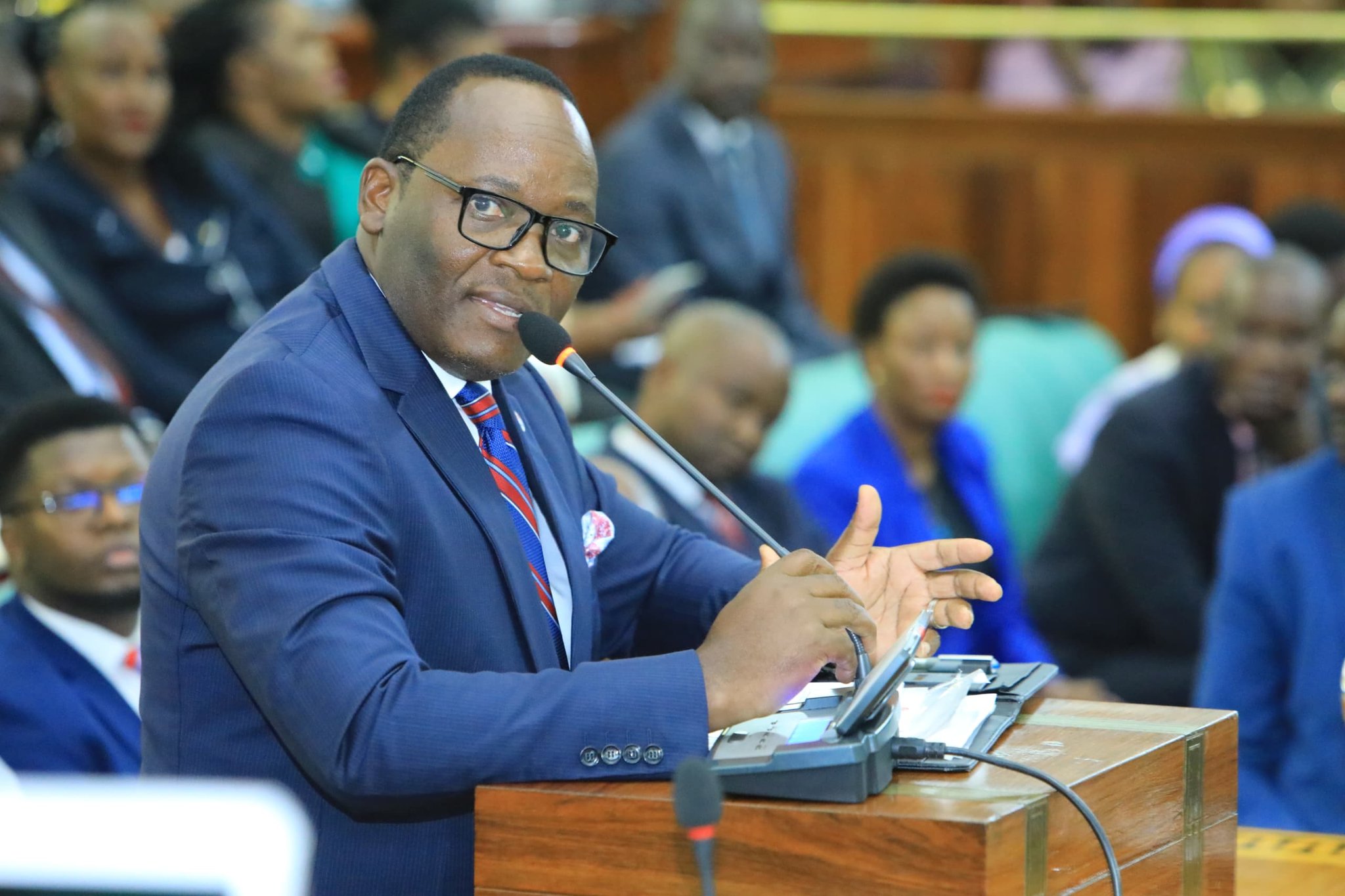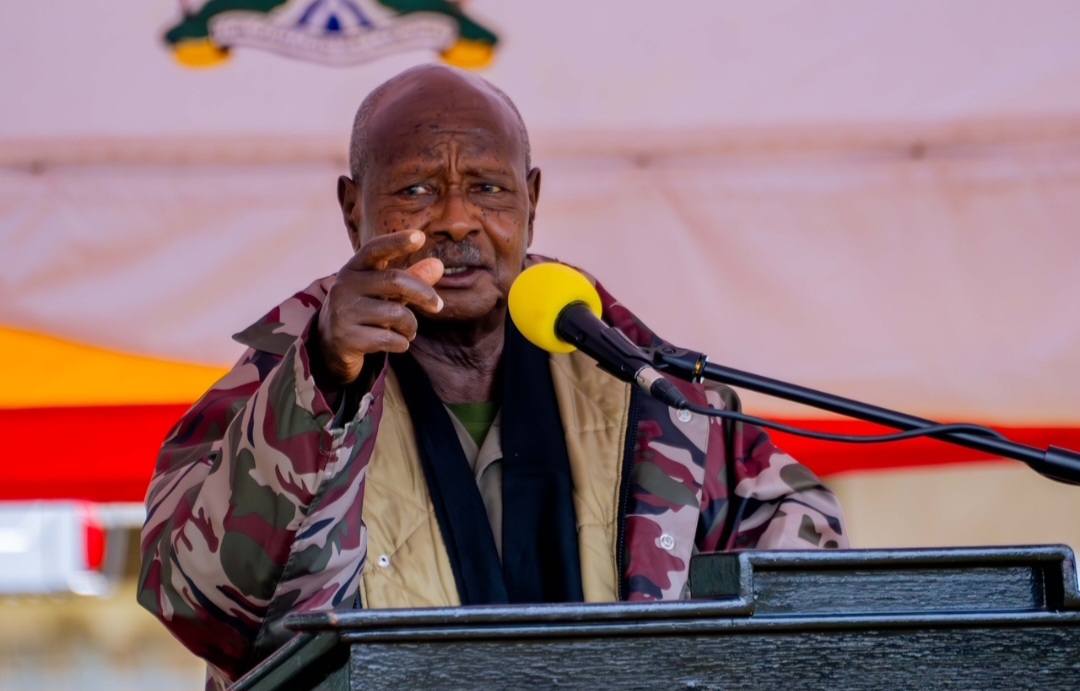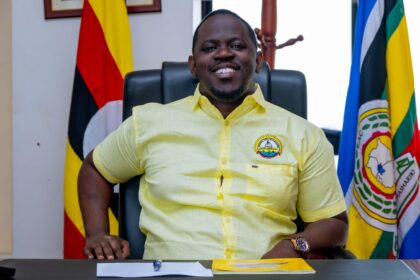The Nyendo Mukungwe lawmaker also former Leader of the Opposition, Mathias Mpuuga on Friday laid out a significant electoral reform proposal to address key constitutional concerns and promote a free and fair electoral process. His proposal touches on three major areas constitutional amendment, legislative reforms, and improving governance structures.
Mpuuga’s proposal is centred around three major bills targeting amendments to the Ugandan Constitution, as laid out in Articles 260, 261, and 262, which define the processes for amending different sections of the Constitution. He argues that Parliament has the time and ability to address these amendments. The local governments and districts, too, can be involved in this process.
Mpuuga seeks to save time and resources by proposing that referendum questions be included on general polling days, ensuring that issues requiring referendum are handled efficiently without necessitating separate voting days. One of the critical amendments he aims to push through is the restoration of presidential term limits, which he views as a key promise of the 1995 Constitution that was undermined when the limits were removed in 2005.
Restoring Term Limits and Strengthening Constitutional Integrity
Mpuuga’s proposal primarily focuses on restoring and entrenching presidential term limits. He reflects on the 1995 Constitution, which he believes was structured to ensure leadership transitions through free and fair elections.
However, he argues that this promise was broken when term limits were removed in 2005, followed by the removal of the age limit in 2018, further weakening the democratic process.
“That in effect, killed that motivation. It killed the basic structure of that constitution, and therefore, in my view, as a lawyer and as a politician, from that day we had, we got a new constitution, which is why we need major surgery to restore that promise and give the nation hope that we can change Leadership otherwise peaceful funds for power is impossible, and in 2018 again, we tinkered with the Constitution and removed another pillar, which was the age limit. So for me, we need to restore term limits and even entrench them. Not just restore but entrench them. Because the article that had them was fair weather, Article 105, now we need to restore them, and then even entrench them,” he said.
Mpuuga emphasizes the importance of restoring these limits, not just reinstating them but also ensuring that they are entrenched in a way that protects them from future political manipulation. This, he argues, is necessary for Uganda to regain the possibility of peaceful leadership transitions and foster long-term stability.
Creation of a Bicameral Parliament
Another significant aspect of Mpuuga’s proposal is the introduction of an upper house of Parliament. This bicameral system would feature an upper house chaired by a Deputy President, who would be elected alongside the President but from a different region.
Mpuuga’s vision is to end the era of vice presidents being relegated to ceremonial roles and funerals. The upper house, composed of 39 members representing the original districts before the creation of the 1995 Constitution, would focus on ensuring representation for these regions and contributing to legislative oversight.
In addition, Mpuuga proposes to reduce the size of Parliament by having one directly elected member from each district, irrespective of gender. This would result in 146 MPs plus an equal number of women representatives elected through proportional representation, ensuring that political party representation in Parliament mirrors their vote share.
Electoral Reform and Presidential Elections Act
Mpuuga also calls for amendments to the Presidential Elections Act. Notably, he seeks reforms that would allow diaspora voters and prisoners to participate in elections. This inclusion of marginalized voters, he argues, would enhance the democratic process and ensure that all citizens have a voice in the country’s leadership decisions.
Additionally, Mpuuga proposes a crucial amendment to the declaration of presidential election results. Currently, the results of parliamentary candidates are announced at the district level, while presidential results are declared at the national level, often causing delays and uncertainties.
He suggests that presidential results should also be declared district by district, mirroring the parliamentary process. This would increase transparency and reduce the anxieties that come with delayed national declarations.
Safeguarding Petitions and Ensuring Accountability
Addressing concerns about the handling of election petitions, Mpuuga calls for amendments that would allow registered voters to file petitions in court regarding presidential elections.
This proposal is a response to instances where presidential candidates have been detained or arrested, restricting their ability to file petitions, as seen with opposition leaders like Kizza Besigye and Robert Kyagulanyo aka Bob Wine in previous elections. The proposal includes a provision for voters filing petitions to deposit security to prevent frivolous lawsuits, drawing from civil litigation practices.
According to Mpuuga who now serves as commissioner of Parliament, a comprehensive electoral proposal seeks to address critical gaps in Uganda’s democratic processes and these can solved by amending the constitution, restoring term limits, and reforming the electoral system to ensure broader participation and accountability.
Do you have a story in your community or an opinion to share with us: Email us at Submit an Article









